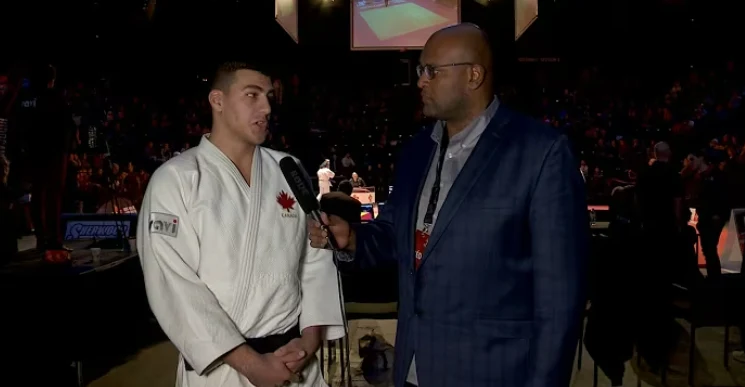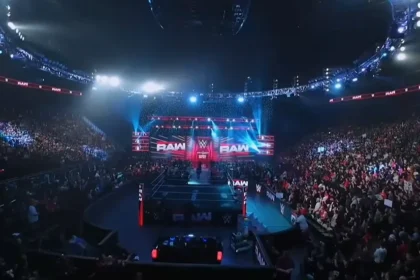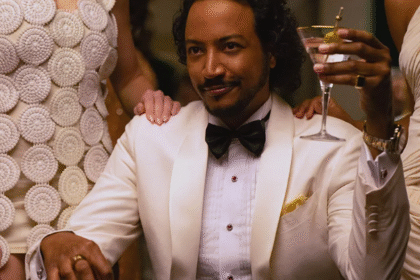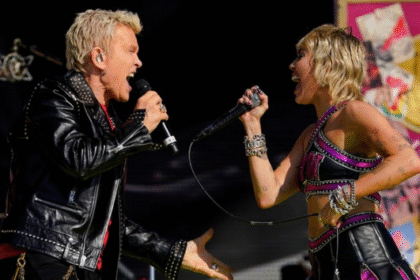May 2025 was a bomb in the world of wrestling: WWE has signed three Olympians. Admittedly, this alone is impressive, but one name instantly caught my attention, that is Shady El Nahas, an Egyptian judoka whose story in the squared circle is as unorthodox as it is motivational.
To Shady, it is not merely a career decision; it is the completion of a lifetime dream, a dream so surreal that it is full-circled that now the plastic heroes of his youth are his workmates. He says, I used to watch WWE and Mamdouh Farag all the time, but at that time, I had a feeling that there was no entrance. So, getting here now… It’s crazy. As my dream in childhood became my dream in life, so to speak.
Alexandria’s Action Figure King: A Childhood Legend
Shady El Nahas was the guy in Alexandria prior to the international titles and Olympic bids. Back in the middle of the 2000s, when you were a child crazy about wrestling in a busy sea city in Egypt, you had heard of Shady. Not because of his sporting abilities at the time, but due to his mythical “sacred stash”- the latest, finest action figures of WWE, months before those figures appeared on the shelves of local stores.
Forgive me the cheap, weak bootlegs; Shady had the heavy, real stuff. The origin of him was unknown: a distant relative in the US? Every year, go to Dubai to Toys’ R Us? He was a literal blip in the chain of supply, a rumor among schoolyard fans. Children would go on a mission to search for him so that they could trade in a much sought-after 2003 Survivor Series John Cena with the vest and chain. It is this colorful subculture of wrestling, which was fed by pirated DVDs and juice stand posters, that heavily influenced a young Shad, creating his first linkage to the sports entertainment business.
The Olympian Detour: From Mat to Main Stage
To millions of children in Egypt, WWE was a hushpuppy dream that had no path to follow. There were no footprints to follow, no heroes of the place to imitate, only wild legends of the superstars with unbelievable Middle Eastern background and training, which usually consisted of bouncing off trampolines on shattered desks.
The world of judo was one area that Shady had an unforeseen detour through. After I entered judo, I went with my brother Mohab to Toronto and then to Montreal. I had wrestled in the Olympics twice in Canada, and somehow that brought me back to the same thing, I said.
On the one hand, a shift of judo towards professional wrestling may sound as something natural on paper; however, in reality, there is a contrast between these two fields. Judo is concerned with organization, training, and direct fighting. The medals and a clear Olympic ladder are often a measuring rod of success. There is no one to assist you in judo, Shady explained. You are working against someone. With wrestling, you are dealing with them. It is your body, only the logic is completely reversed. In addition, judo requires modesty, and professional wrestling is supported by exaggerated character and dramatic performance. It is not always possible to celebrate in judo like pro wrestlers; you cannot do this or that, you have to be modest all the time. Here, it’s the opposite. You are advised to demonstrate personality and a bit more since it is one of the jobs.
Beyond the Ropes: A New Era for Arab Representation
Shady’s signing carries a significance far beyond personal achievement. For decades, WWE has struggled with authentic Arab representation, often relegating characters to one-dimensional villains or problematic post-9/11 stereotypes. Remember Muhammad Hassan, the “frustrated Arab American wrestler” (played by a non-Arab actor) in 2005, or the Cold War-era “Iron Sheik”? While progress has been made with stars like Sami Zayn, Shady El Nahas stands out as the only wrestler actually born in the region to sign a WWE contract.
This is a responsibility Shady embraces wholeheartedly. “That’s one of the first things I talked about when I got signed,” he confirmed, emphasizing his commitment to representing his Egyptian heritage authentically. Even after years in Canada, he wants his identity to be crystal clear. “If it were up to me, I’d wrestle under my real name and speak in Arabic too,” he revealed. He envisions an entrance radiating his pride, perhaps walking out to the energetic beats of Mahraganat music – “Has to be upbeat. Something exciting for the crowd and for me. Personality is a must.”
Family, Future, and Fierce Ambition
Like many from an Egyptian family, Shady faced the expectation of pursuing a more traditional career path, like medicine or engineering. The idea of a full-time wrestler, prone to being slammed through tables on live TV, was far from the standard roadmap. Yet, his unwavering discipline in judo, more than the medals or Olympic appearances, eventually won over his parents.
Now, with their support, Shady is focused on his new career with fierce ambition. “I don’t want just to survive here. I want titles. I want people to say, ‘That Egyptian kid can wrestle.’ I want to be one of the best ever to do it,” he stated with conviction. But his definition of success extends beyond personal accolades. “More importantly, I want to help my family. If something good comes out of all this, I want it to go to them, not just me. They’ve supported me the whole way through, covered the travel, the judo tournaments, everything. It wasn’t cheap. I’ll always be grateful for that.”
The Next Chapter: Orlando and the Squared Circle
Today, Shady is training rigorously at the WWE Performance Center in Orlando, Florida, with a potential NXT debut on Netflix looming on the horizon. The journey from the kid with the “sacred stash” to a WWE hopeful is nothing short of extraordinary.
Shady El Nahas is more than just a new recruit; he’s a trailblazer. His dedication, his unique backstory, and his unwavering commitment to representing his heritage with pride position him to be a game-changer for WWE and a powerful inspiration for aspiring wrestlers across Egypt and the broader Arab world. We are, quite truly, watching history in the making.











